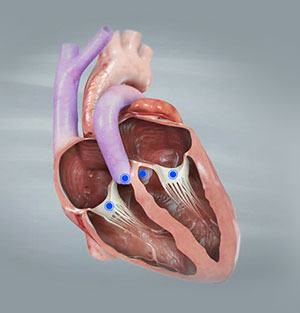Valvular Heart Disease

Your heart has four valves. Normally, these valves open to let blood flow through or out of your heart, and then shut to keep it from flowing backward. But sometimes they don’t work properly. If they don’t, you could have:
- Regurgitation – when blood leaks back through the valve in the wrong direction.
- Mitral valve prolapse – when one of the valves, the mitral valve, has “floppy” flaps and doesn’t close tightly. It’s one of the most common heart valve conditions. Sometimes it causes regurgitation.
- Stenosis – when the valve doesn’t open enough and blocks blood flow
Valve problems can be present at birth or caused by infections, heart attacks, heart disease or damage. The main sign of heart valve disease is an unusual heartbeat sound called a heart murmur. Your doctor can hear a heart murmur with a stethoscope. But many people have heart murmurs without having a problem.
Heart tests can show if you have a heart valve disease. Some valve problems are minor and do not need treatment. Others might require medicine, medical procedures, or surgery to repair or replace the valve.
NIH: National Heart, Lung, and Blood Institute



